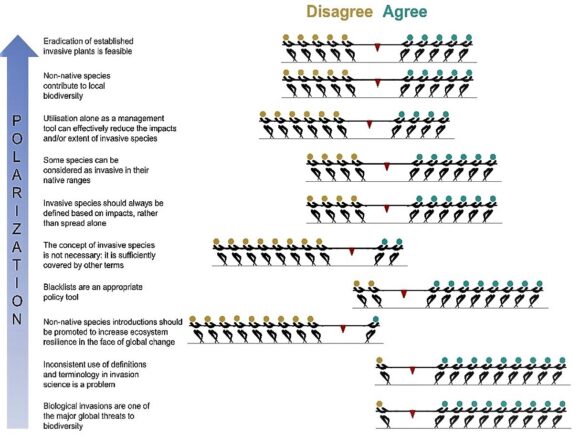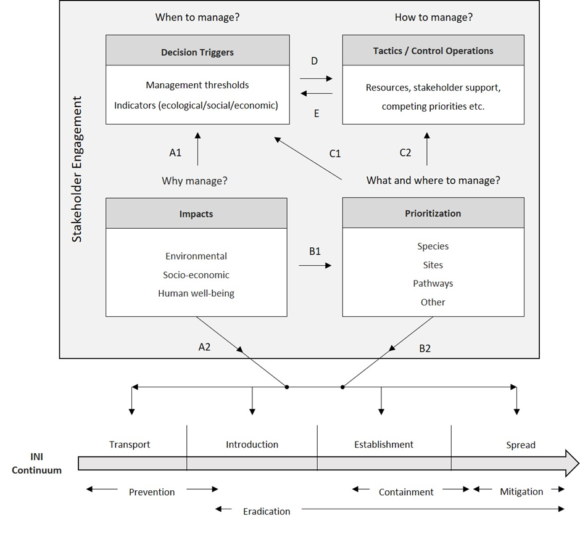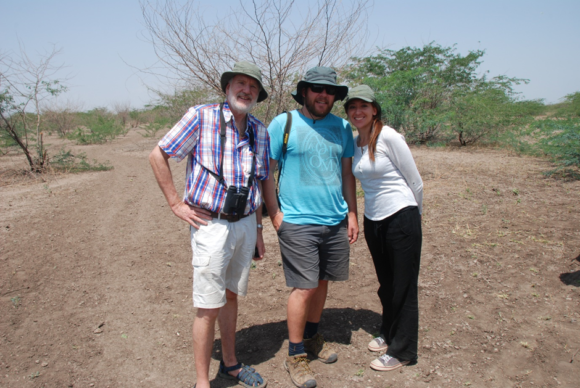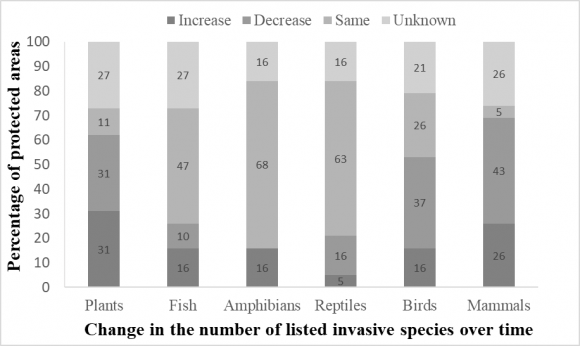Do controversies divide the field of invasion science? A new study finds that consensus among invasion science experts is generally high, however, some topics still generate debate.
A global study that assessed researchers’ and practitioners’ options (698 people) on debated topics in the field of invasion science was conducted by C∙I∙B Associate Ross Shackleton (University of Lausanne) in collaboration with former C∙I∙B PhD student Giovanni Vimercati, Anna Probert and Sven Bacher (all from the University of Fribourg), Christian Kull (University of Lausanne) and Ana Novoa (Czech Academy of Sciences), to see where disagreements exist in the invasion science filed and what underlying factors might cause this.
Contexts, approaches, values, and perceptions in invasion science are highly dynamic and this can lead to divergent views as debate in the field. Debates can become counterproductive for science and management if left unchecked. Understanding different perspectives and discourses, and finding solutions to contentious issues and polarized debates, can be crucial for moving research disciplines forward and ensuring effective management.
In the study, Shackleton and co-authors found that most debated topics general have good consensus now. However, there is still polarization in people’s views on some topics.
Relating to general values, there was high polarization regarding claims of invasive species denialism, whether invasive species contribute to biodiversity, and how biodiversity reporting should be conducted.
With regards to management, there were polarized views on banning the commercial use of beneficial invasive species, the extent to which stakeholders’ perceptions should influence management, whether invasive species use alone is an appropriate control strategy, and whether eradication of invasive plants is possible.
For impacts, there were high polarization concerning whether invasive species cause or are a side effect of degradation and whether invasive species benefits are understated.
For terminology, there were polarized views related to defining invasive species based only on spread, whether species can be labelled as invasive in their native ranges, and whether the language used is too xenophobic.
Views were particularly divergent and polarised between people working on different invasive taxa (plants and mammals) and in different disciplines (between biologists and social scientists), between academics and practitioners, and between people working in different world regions (especially between Africa and the Global North). Unlike in other studies, age and gender had a limited influence on people’s responses.
These findings help to better contextualise debates and help with understanding why they arise and persist.
Ross Shackleton discusses that “Better collaboration between disciplines and different stakeholders globally could help build broader shared understanding and consensus and reduce current and potential debates and conflicts.”
Read the paper in Conservation Biology
Shackleton, R.T., Giovanni, V., Probert, A.F., Bacher, S., Kull, C.A. and Novoa, A. (2022) Consensus and controversy in the discipline of invasion science. Conservation Biology. DOI: 10.1111/cobi.13931
For more information contact, Ross Shackleton at rtshackleton@gmail.com




